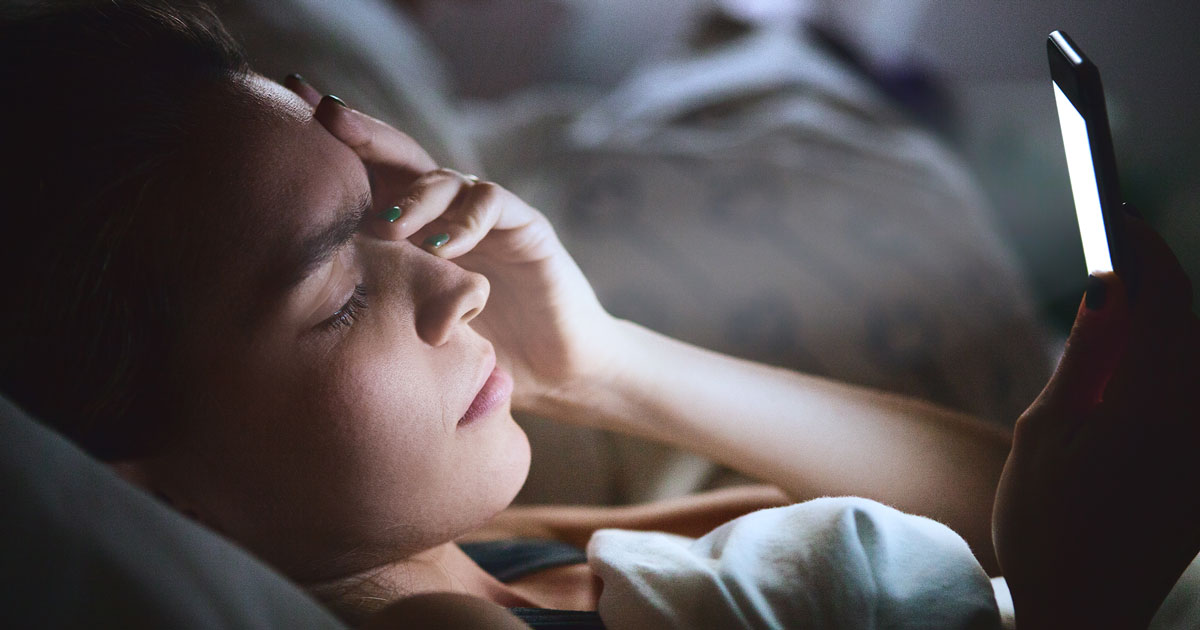How doomscrolling can affect your mood and sleep

It's normal to want to be informed. Given all of the disruption of the past two years, along with recent current events, many of us have spent more time checking the news and social media for the latest.
But all the extra computer, phone and TV time isn't great for your health. Too much screen time can have these three effects:
- Increased anxiety from doomscrolling
- Trouble sleeping at night
- Eye strain, dry eyes and headaches
Read on to find out how to avoid the negative effects of screens.
1. How doomscrolling increases anxiety
Doomscrolling is when you can't stop reading negative news for hours at a time. While doomscrolling during a crisis is understandable, living in a state of bad news can increase anxiety.
When you're in a funk, your body wants to stay there. Think of it as negative inertia: You continue to feel down because your actions (like doomscrolling) are reinforcing your foul mood.
"A common technique in dialectical behavior therapy is to act opposite to your current emotion," says Amber Bond, PA-C, Psychiatry. "If you're in a doomsday mindset, do something fun."
Watch a funny movie, eat some tasty ice cream, talk to a close friend or go for a stroll outside. The important thing is to choose a positive action that makes you feel good. When you act and feel in control, your mental health will follow. And try to avoid doomscrolling – especially late at night.
2. Can't sleep? Blame blue light
If you're having trouble sleeping at night, is blue light from your phone to blame? Browsing social media or watching TV right before bed can mess up your sleep schedule.
"The blue light from your phone at night interrupts your circadian rhythm," says optometrist Muriel Jepsen, OD. "The blue light from screens tells your body to decrease melatonin, the sleep chemical, making it harder to fall asleep."
The fix is pretty simple: Avoid all screens one hour (or more) before bed. Silence or turn off your phone an hour before you intend to go to sleep.
3. Avoid eye strain, dry eyes and headaches with these three tips
Some people use a computer for most of their workday. Headaches, eye strain and dry eyes are all too common symptoms from using a screen for long periods of time. If you're suffering – and can't exactly take the day off – here are some ways to help.
- Hydrate! Getting enough hydration helps reduce eye strain. When you don't drink enough water, your body creates fewer tears. So drink up – your eyes will love it.
- Blink on purpose. Blinking produces tears that refresh your eyes. While gazing at a computer screen, we blink less naturally. Tell yourself to blink if your eyes are tired.
- Use artificial tears. You can buy these without a prescription. Artificial tears lubricates dry eyes and can even help your eyes heal.
If you continue to have eye issues, that's a good sign that you should see an optometrist. "Some people need different prescriptions for working at a computer versus driving," says Dr. Jepsen. "Or your prescription might need a simple adjustment."
If your prescription is over a year old, it's definitely time to come in. See all Nebraska Medicine optometrists here.





